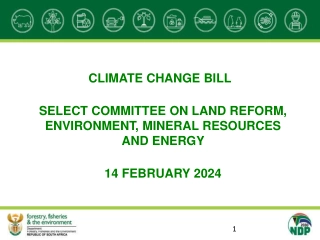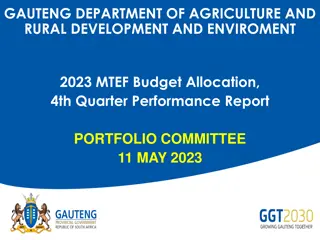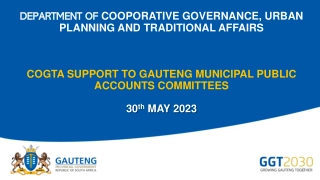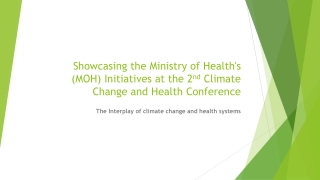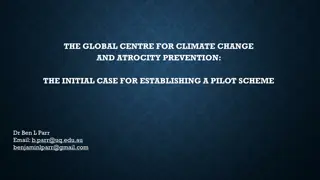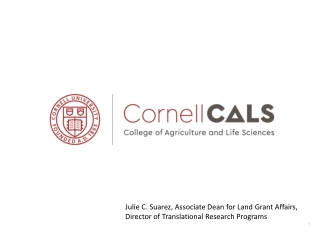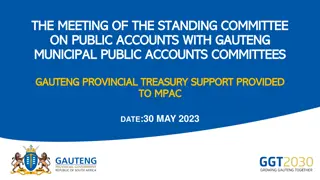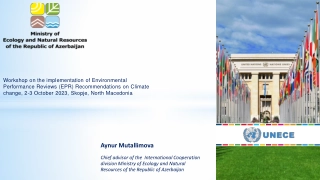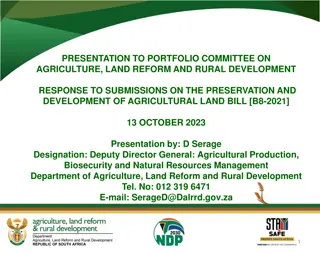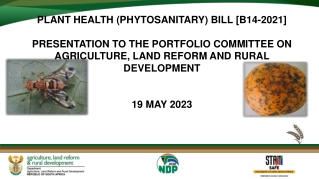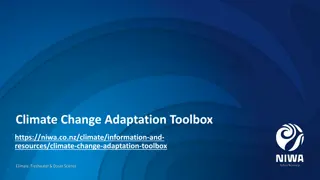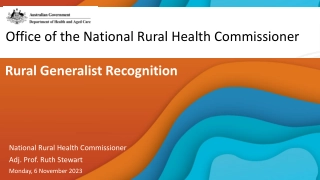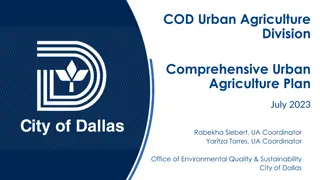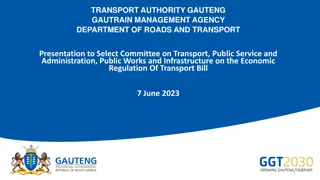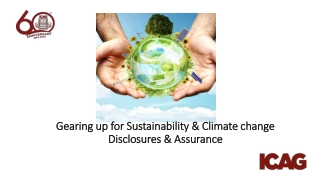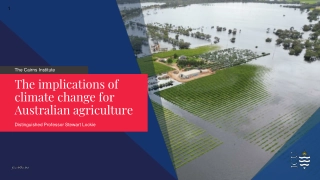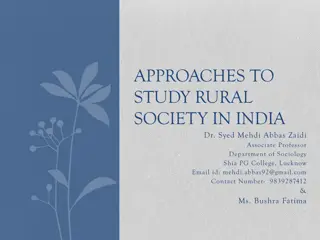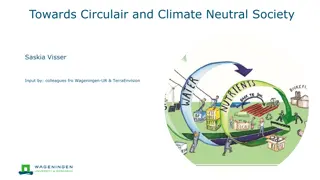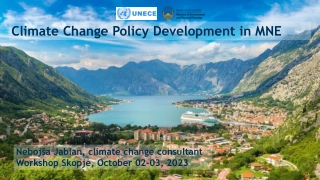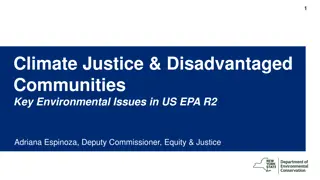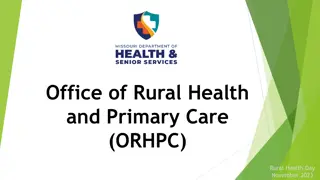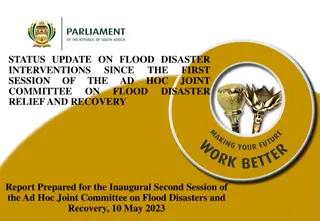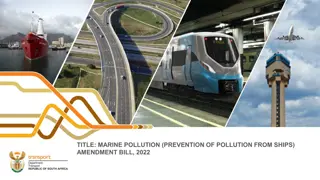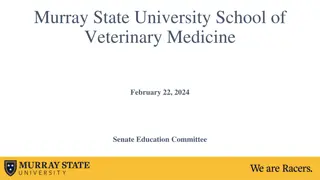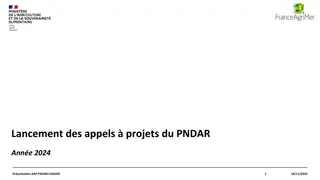Gauteng Department of Agriculture, Rural Development & Environment - Climate Change Bill Overview
The Gauteng Department of Agriculture, Rural Development & Environment (GDARDE) is advancing the Climate Change Bill as part of its commitment to the Paris Agreement. The bill emphasizes the urgent need to address rising global greenhouse gas emissions and outlines strategic responses at the provincial level. Key components include establishing expert committees for climate change coordination and monitoring progress towards a net-zero economy.
Gauteng Department of Agriculture, Rural Development & Environment - Climate Change Bill Overview
PowerPoint presentation about 'Gauteng Department of Agriculture, Rural Development & Environment - Climate Change Bill Overview'. This presentation describes the topic on The Gauteng Department of Agriculture, Rural Development & Environment (GDARDE) is advancing the Climate Change Bill as part of its commitment to the Paris Agreement. The bill emphasizes the urgent need to address rising global greenhouse gas emissions and outlines strategic responses at the provincial level. Key components include establishing expert committees for climate change coordination and monitoring progress towards a net-zero economy.. Download this presentation absolutely free.
Presentation Transcript
GAUTENG DEPARTMENT OF AGRICULTURE, RURAL DEVELOPMENT & ENVIRONMENT (GDARDE) Gauteng Legislature-Climate Change Bill 15 MARCH 2024 1
Table of Contents Backround and province activities Purpose and objects of the Bill Principles of the Bill Key definitions Processing of the Bill by the Portfolio Committee (PC) Salient amendments effected by the PC Policy alignment and institutional arrangements Climate Change Response (provinces and municipalities) National adaptation to impacts of climate change Sector adaptation to impacts of climate change Greenhouse gas emissions and removals
BACKGROUND IPCC sixth assessment in 2022 - Global GHG emissions have continued to rise, but GHG emissions must peak in the next three years to preserve our chances of meeting the Paris Agreement's 1.5 C goal. There's no room for building new fossil fuel infrastructure, with CO2 emissions from existing and planned fossil fuel infrastructure alone exceeding global 1.5C budgets. Carbon removal will need to play an important role as all pathways that limit warming to 1.5 degrees C (with no or limited overshoot) depend on carbon removal. For the corporate sector, this means transitioning towards business models that are compatible with a net-zero economy within the next three to five decades Requires monitoring and tracking of initiatives and responses.
BACKGROUND Gauteng City Region Climate Change response is guided by the Gauteng City Region Over-arching Climate Change Response Strategy and Action Plan: The Strategy - approved for implementation by EXCO on 26 August 2020. Aligned to Climate Change Bill The Strategy supports SA s commitment to meet Paris Agreement pledges and National Determined Contribution (NDC) targets for reduction of the country s Greenhouse Gas (GHG) emissions.
STRATEGIC IMPLEMENTATION OF STRATEGY The Draft Climate Change Bill - A Provincial Committee on Climate Change is established for each province in the Republic, in order to coordinate climate change response actions in the relevant province... . also aligned to STRATEGY The Premier s Expert Advisory Committee on Climate Change (PEACCC) launched by Gauteng Premier on 1 June 2022 to strategically monitor and report on progress of provincial climate response programmes. It consists of various experts in the fields of energy, water, infrastructure, finance etc. THE OBJECTIVES OF THE COMMITTEE ARE AS FOLLOWS The Expert Advisory Committee will guide and accelerate implementation of the Gauteng City Region Overarching Climate Change Response Strategy. The Expert Advisory Committee will also provide expert advice on elements of a just transition pathway for the Gauteng City Region.
STRATEGIC IMPLEMENTATION OF STRATEGY Climate Change Forums Aimed at provincial and municipal officials Share climate change knowledge increase reach Climate Change Indaba Enlarged event for 2023 - hybrid International Participation
STRATEGIC IMPLEMENTATION OF STRATEGY Strategic Alliances Under 2 Coalition - technical advice and inputs GISP resource efficiency GBCSA capacity building for built environment UJ projects and programmes to enhance sustainability Regions4 Private sector participation - bilateral engagements SASOL National Business Initiative (NBI) Gautrain Management Authority Development Bank of Southern Africa Balwin Properties Green Building Council of South Arica (GBCSA) South African Petroleum Industry Association (SAPIA).
Climate Change Strategic Projects Project Solar PV installation at public facilities Replacement of coal fired boilers with dual fired boilers in hospitals which use light fuel oil and gas Gauteng 2050 Net-Zero Guidelines and Green Public Procurement Guidelines (GPPG) Climate Change School Awareness Programme Department/s GDID GDID/Health GDARDE GDARDE GDARDE GDARDE GDARDE GDARDE GDARDE GDARDE GDARDE Kaalspruit Climate Resilient Catchment Management Plan Gauteng Greenhouse Gas (GHG) Inventory Gauteng Industrial Symbiosis Programme Planting of 1 000 000 trees Training of SMMEs in solar PV installation Farmers Support Programme in renewable energy (i.e. biogas and solar) Pre-feasibility Study for the Regional Integrated Waste Facility
Purpose and Objectives of the Bill The purpose of the Bill is to enable the development of an effective national climate change response, and a long term just transition to a low-carbon and climate-resilient economy and society for South Africa in the context of sustainable development. The objects of the Bill are, amongst others, to provide for a coordinated and integrated response by the economy and society to climate change and its impacts in accordance with the principles of co-operative governance. provide for the effective management of inevitable climate change impacts by enhancing adaptive capacity, strengthening resilience and reducing vulnerability to climate change, with a view to building social, economic, and environmental resilience and an adequate national adaptation response in the context of the global climate change response. make a fair contribution to the global effort to stabilise greenhouse gas (GHG) concentrations in the atmosphere at a level that avoids dangerous anthropogenic interference with the climate system; and ensure a just transition towards a low carbon economy and society considering national circumstances.
Purpose and Objectives of the Bill The purpose of the Bill is to enable the development of an effective national climate change response, and a long term just transition to a low-carbon and climate-resilient economy and society for South Africa in the context of sustainable development. The objects of the Bill are, amongst others, to provide for a coordinated and integrated response by the economy and society to climate change and its impacts in accordance with the principles of co-operative governance. provide for the effective management of inevitable climate change impacts by enhancing adaptive capacity, strengthening resilience and reducing vulnerability to climate change, with a view to building social, economic, and environmental resilience and an adequate national adaptation response in the context of the global climate change response. make a fair contribution to the global effort to stabilise greenhouse gas (GHG) concentrations in the atmosphere at a level that avoids dangerous anthropogenic interference with the climate system; and ensure a just transition towards a low carbon economy and society considering national circumstances.
Principles of the Bill To be integrated into the making of decisions which may have a significant effect on the Republic s ability to mitigate or which exacerbate its vulnerability to climate change; The national environmental management principles set out in section 2 of the National Environmental Management Act where applicable in this Act; Climate system should be protected for the benefit of present and future generations of humankind; Acknowledges international equity and each country s common but differentiated responsibilities and respective capabilities, in light of different national circumstances; A contribution to a just transition towards low carbon, climate resilient and ecologically sustainable economies and societies which contribute to the creation of decent work for all, social inclusion, and the eradication of poverty; and The need for integrated management, in the context of climate change, which requires climate change considerations.
Key definitions Below is a summary of key definitions; "climate change" means a change of climate that is attributed directly or indirectly to human activity that alters the composition of the global atmosphere and that is in addition to natural climate variability observed over comparable time periods. "direct greenhouse gas emissions" means greenhouse gas emissions from sources that are owned or controlled by a person. "indirect greenhouse gas emissions" means emissions that are a consequence of the activities of a person, but occur at sources owned or controlled by another person. "just transition" means a shift towards a low carbon, climate resilient economy and society and ecologically sustainable economies and societies which contribute toward the creation of decent work for all, social inclusion and the eradication of poverty. "mitigation" means a human intervention to reduce the sources or enhance the carbon sinks of greenhouse gases. "Nationally Determined Contribution" means the Nationally Determined Contribution, as amended from time to time, prepared in terms of Article 4(2) of the Paris Agreement and submitted by the Republic to the Secretariat of the United Nations Framework Convention on Climate Change in terms of Article 4(12) of the Paris Agreement.
National Portfolio Committee consultations The Portfolio Committee conducted physical and virtual public hearings on the Climate Change Bill from September 2022 to July 2023. Number of submissions received by the Portfolio Committee: - 101 Substantive written submissions; and - 1001 composite emails from Dear South Africa . Between August to October 2023, the Portfolio Committee deliberated on the comments received, and agreed of amendments to the Bill.
POLICY ALIGNMENT AND INSTITUTIONAL ARRANGEMENTS Every Premier s intergovernmental forum, established in terms of section 16 of the Intergovernmental Relations Framework Act, also serves as a Provincial Forum on Climate Change. A Provincial Forum on Climate Change may establish an intergovernmental technical support structure in terms of section 30 of the Intergovernmental Relations Framework Act if there is a need for formal technical support to the Provincial Forum on Climate Change. Every district intergovernmental forum, established in terms of section 24 of the Intergovernmental Relations Framework Act, also serves as a Municipal Forum on Climate Change A Municipal Forum on Climate Change may establish an intergovernmental technical support structure in terms of section 30 of the Intergovernmental Relations Framework Act if there is a need for formal technical support to the Municipal Forum on Climate Change. The Presidential Climate Commission which existed immediately before the commencement of this Act continues to exist. The Presidential Climate Commission will, upon being listed as a public entity in Schedule 3 to the Public Finance Management Act, be a national public entity for purposes of the Public Finance Management Act and will be subject to the provisions of the said Act.
CLIMATE CHANGE RESPONSE: PROVINCES AND MUNICIPALITIES At least within one year of the publication of the National Adaptation Strategy and Plan contemplated in section 18, undertake a climate change needs and response assessment for the province, metropolitan or district municipality, as the case may be; At least within two years of undertaking the climate change needs and response assessment contemplated in paragraph (a), develop, implement and publish in the Gazette a climate change response implementation plan as a component of, and in conjunction with, provincial, metropolitan or district municipal planning instruments, policies and programmes; A metropolitan or district municipal climate change response implementation plan, contemplated in subsection (1)(d), must form a component of the relevant municipality s integrated development plan adopted in terms of section 25 of the Local Government: Municipal Systems Act, 2000 (Act No. 32 of 2000). The Minister must prescribe a mechanism to support and finance the Republic s climate change response, planning and implementation by national, provincial and local government in consultation with the Minister of Finance.
Province support for the bill The province is in support of the Bill and stands ready to implement the requirements of the bill and to support the municipalities where required.


